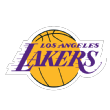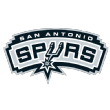[h=1]Why depth can hurt fantasy value[/h][h=3]Teams with deeper rotations can take away from star players' production[/h]
By John Cregan | Special to ESPN.com
As you all know, there was a bit of a Popovich-ian percolation on the fantasy landscape a couple of weeks back.
I'm referring to the San Antonio Spurs coach daring to sit his four most fantasy-worthy players (Tim Duncan, Tony Parker, Manu Ginobili and Danny Green) for a marquee road matchup versus the Miami Heat. I seem to remember NBA commissioner David Stern being less than impressed at the prospect of a Matt Bonner-led attack.
I'm not going to rehash Restgate, but this is America. It's an NBA coach's right to rest his players as he sees fit. It makes for more exciting playoff viewing. And I think it's fun to see Nando de Colo go for 15 and 5. You watch the Spurs for the enjoyment of a system, not the camera-friendly effervescence of Green.
The larger issue for fantasy enthusiasts is whether these bouts of spontaneous rest will continue to occur.
The short answer is "Of course." Or "They always have and always will." Or "It took this to get you to notice?"
The resting of aging, creaky rotations is an annual second-half occurrence. Coaches of veteran teams should attempt to regenerate their most Methuselah-like contributors for the playoffs.
Yes, this practice wreaks havoc on fantasy teams at the worst possible time … during the fantasy stretch run and playoffs. But rather than complain and grumble, it's your job to anticipate and plan for this eventuality.
But bouts of random, spontaneous nap time for older teams are just one symptom of a larger fantasy problem. Older teams are, by and large, bad for fantasy business. Why?
They tend to feature longer, deeper rotations.
Deep rotations mean minutes and touches are spread thin among a higher number of players. Roles within older rotations fluctuate with greater frequency, thanks to the piping up of the small day-to-day type of maladies that tend to strike the over-30 set.
I prefer teams like the Memphis Grizzlies, where minutes are heavily concentrated in a top-heavy manner. They have four starters (with only one player over 30) averaging 35-plus minutes a game, and a mild timeshare at shooting guard led by steals specialist Tony Allen. Easy. Done.
In contrast, take a gander at the Los Angeles Clippers. The Clippers, like the Grizzllies, are stampeding toward a top-four seed in the Western Conference. But from a fantasy perspective, they're a depressing disappointment primarily because they have nine players averaging at least 19 minutes per game.
Their two young superstars (Chris Paul and Blake Griffin) are putting up career low-type numbers. Due to their long, varied injury histories (and the Clippers' veteran depth), they're respectively averaging 33.1 and 32.5 minutes per game. Next, you have Jamal Crawford at 29.5 minutes per game but coming off the bench, which promotes numerical inconsistency.
Then … the abyss. Seven players averaging between 17 and 26 minutes a night.
A timeshare at small forward. A center with upside who can't seem to stay on the court. And a cadre of older players (Matt Barnes, Chauncey Billups, Caron Butler, Lamar Odom) whose minutes are constantly yo-yoing along with their production.
And bringing up the rear: poor, neglected Eric Bledsoe, who is quietly putting up drool-worthy "per-36-minute" averages (18.9 points, 5.6 assists, 5.3 rebounds, 2.9 steals, 1.8 3-pointers and 1.3 blocks).
The Clippers are the fantasy equivalent of guacamole; a viscous, amorphous goop that yields delicious results but is darned difficult to look at. And because they're looking like a lock for hosting at least one playoff series, their starters are inordinately susceptible to late-season bouts of rest and relaxation.
Let's take a look at some other, ahem, more experienced squads to worry about as the season unfolds.
[h=3]Dallas Mavericks (11-13, 11th in Western Conference)[/h]

Players averaging over 15 MPG: 9
O.J. Mayo (35.7), Darren Collison (31.2), Shawn Marion (29.9), Derek Fisher (27.9), Chris Kaman (26.0), Vince Carter (23.7), Elton Brand (21.9), Jae Crowder (19.3), Brandan Wright (17.1)
(And don't forget that Dirk Nowitzki is coming back next week. Which means the Mavericks' one elite fantasy player -- Mayo -- is most likely at his peak value as of this writing.)
From a pure NBA standpoint, you kind of have to admire how the Mavericks were assembled on the fly this past summer. With Nowitzki, this is a borderline playoff team that is constructed to self-destruct at season's end in the pursuit of cap space. But the current minute distribution makes for tough viewing.
The Mavericks' one other player averaging over 30 minutes (Collison) is currently being outplayed by a 38-year-old Fisher, who didn't have a job a few weeks ago.
And the backcourt is a bastion of stability compared to the fantasy situations at small forward, power forward and center. You have a three-headed monster at the 3 with Marion (the best fantasy option when healthy), Crowder and Carter. If Nowitzki comes back strong, he'll leave about 60 minutes per game between power forward and center to be divvied up between Kaman, Brand and Wright. Yuck.
What makes this scary is that things could get worse. If Dallas decides to fade from playoff contention, you could be looking at absolute statistical anarchy after the trade deadline.
It's a shame is because Dallas ranks second in the NBA with a pace of 99.2, which means that there's a lot of fantasy opportunity being generated on a game-to-game basis. There just are too many half-decent, aged Mavericks to go around.
[h=3]Los Angeles Lakers (11-14, 12th in Western Conference)[/h]

Players averaging over 15 MPG: 11
Kobe Bryant (38.2), Dwight Howard (36.7), Metta World Peace (35.0), Pau Gasol (34.8), Steve Blake (26.0), Steve Nash (25.0), Chris Duhon (24.2), Antawn Jamison (20.0), Darius Morris (19.3), Jodie Meeks (17.2) Jordan Hill (15.4)
(The 11 figure is a little overinflated due to injuries to Nash, Gasol and Blake injuries.)
This is a situation that should start to improve very quickly. I think as soon as Nash returns, you're going to see the Lakers' production and rotation settle into a groove. It's hard to run a Mike D'Antoni offense with Duhon and Morris.
And don't forget that D'Antoni is a fantastic fantasy coach. Look at what he's getting out of World Peace (13.3 points, 5.8 rebounds, 2.2 3-pointers, 1.7 steals per game).
The Lakers do have ongoing fantasy issues: what they do with Gasol and will they break down if they have to expend a ton of minutes and energy to claw into playoff position.
Bryant can't possibly keep this up, Howard is still rounding into pre-surgery form, and World Peace is, well, something of a long-term emotional liability and a fantastic rapper. This is a team that will need to be rested but probably won't get the chance, which could lead to at least one significant injury after All-Star Weekend.
[h=3]Boston Celtics (12-11, 8th in Eastern Conference)[/h]

Players averaging over 15MPG: 8
Rajon Rondo (37.9), Paul Pierce (34.3), Jason Terry (30.3), Kevin Garnett (29.3), Brandon Bass (27.5), Courtney Lee (24.3), Jeff Green (22.8), Jared Sullinger (17.3)
(And Avery Bradley should be back soon.)
The Celtics have better depth than the Lakers, but they're in a similar situation in that they're currently underperforming to expectations. They might have to keep the pedal to the metal with Pierce and Garnett, who are both better off averaging 4-5 minutes less per game.
The problem is that the young players expected to take up some of the slack have disappointed. Bass seems likely to stay in his 9-point, 5-rebound range, making him unownable in shallow to medium leagues. Sullinger isn't ready for big-time minutes, but he does have upside on the offensive end. However, Green has begun to flash some of his old potential on a more consistent basis. He's the biggest hope for a second-half breakout if and when Pierce and Garnett start getting rested.
The backcourt is all about available minutes at shooting guard. You have four players who have all shown they can produce given minutes at the position (Terry, Lee, Bradley and even Leandro Barbosa). Terry has gotten his groove back in his old role of sixth man, so it could be a question of who eventually starts between Lee and Bradley.
[h=3]San Antonio Spurs (19-7, 3rd in Western Conference)[/h]

Players averaging over 15 MPG: 10
Parker (32.7), Duncan (30.2), Green (29.6), Kawhi Leonard (28.9), Gary Neal (26.0),Ginobili (24.1), Boris Diaw (23.4), Stephen Jackson (22.8), Tiago Splitter (19.8), DeJuan Blair (16.9)
(And even de Colo has been making some noise as of late.)
Here's the team you really to watch out for on the rest front, primarily because it's so well constructed.
Popovich has obviously taken to resting his older players before. I don't think he's worried about fines. The Spurs are stocked with quietly efficient players who, taken as a whole, are more of a collection of well-crafted interchangeable parts. It's an easy team to shuffle in terms of rotation.
San Antonio will most likely be satisfied with a top-four seed in the playoffs. They'll probably lock that up in March. They have a bevy of young players who fit well in the system and would benefit from extended playing time.
Popovich better have his checkbook handy.
By John Cregan | Special to ESPN.com
As you all know, there was a bit of a Popovich-ian percolation on the fantasy landscape a couple of weeks back.
I'm referring to the San Antonio Spurs coach daring to sit his four most fantasy-worthy players (Tim Duncan, Tony Parker, Manu Ginobili and Danny Green) for a marquee road matchup versus the Miami Heat. I seem to remember NBA commissioner David Stern being less than impressed at the prospect of a Matt Bonner-led attack.
I'm not going to rehash Restgate, but this is America. It's an NBA coach's right to rest his players as he sees fit. It makes for more exciting playoff viewing. And I think it's fun to see Nando de Colo go for 15 and 5. You watch the Spurs for the enjoyment of a system, not the camera-friendly effervescence of Green.
The larger issue for fantasy enthusiasts is whether these bouts of spontaneous rest will continue to occur.
The short answer is "Of course." Or "They always have and always will." Or "It took this to get you to notice?"
The resting of aging, creaky rotations is an annual second-half occurrence. Coaches of veteran teams should attempt to regenerate their most Methuselah-like contributors for the playoffs.
Yes, this practice wreaks havoc on fantasy teams at the worst possible time … during the fantasy stretch run and playoffs. But rather than complain and grumble, it's your job to anticipate and plan for this eventuality.
But bouts of random, spontaneous nap time for older teams are just one symptom of a larger fantasy problem. Older teams are, by and large, bad for fantasy business. Why?
They tend to feature longer, deeper rotations.
Deep rotations mean minutes and touches are spread thin among a higher number of players. Roles within older rotations fluctuate with greater frequency, thanks to the piping up of the small day-to-day type of maladies that tend to strike the over-30 set.
I prefer teams like the Memphis Grizzlies, where minutes are heavily concentrated in a top-heavy manner. They have four starters (with only one player over 30) averaging 35-plus minutes a game, and a mild timeshare at shooting guard led by steals specialist Tony Allen. Easy. Done.
In contrast, take a gander at the Los Angeles Clippers. The Clippers, like the Grizzllies, are stampeding toward a top-four seed in the Western Conference. But from a fantasy perspective, they're a depressing disappointment primarily because they have nine players averaging at least 19 minutes per game.
Their two young superstars (Chris Paul and Blake Griffin) are putting up career low-type numbers. Due to their long, varied injury histories (and the Clippers' veteran depth), they're respectively averaging 33.1 and 32.5 minutes per game. Next, you have Jamal Crawford at 29.5 minutes per game but coming off the bench, which promotes numerical inconsistency.
Then … the abyss. Seven players averaging between 17 and 26 minutes a night.
A timeshare at small forward. A center with upside who can't seem to stay on the court. And a cadre of older players (Matt Barnes, Chauncey Billups, Caron Butler, Lamar Odom) whose minutes are constantly yo-yoing along with their production.
And bringing up the rear: poor, neglected Eric Bledsoe, who is quietly putting up drool-worthy "per-36-minute" averages (18.9 points, 5.6 assists, 5.3 rebounds, 2.9 steals, 1.8 3-pointers and 1.3 blocks).
The Clippers are the fantasy equivalent of guacamole; a viscous, amorphous goop that yields delicious results but is darned difficult to look at. And because they're looking like a lock for hosting at least one playoff series, their starters are inordinately susceptible to late-season bouts of rest and relaxation.
Let's take a look at some other, ahem, more experienced squads to worry about as the season unfolds.
[h=3]Dallas Mavericks (11-13, 11th in Western Conference)[/h]

Players averaging over 15 MPG: 9
O.J. Mayo (35.7), Darren Collison (31.2), Shawn Marion (29.9), Derek Fisher (27.9), Chris Kaman (26.0), Vince Carter (23.7), Elton Brand (21.9), Jae Crowder (19.3), Brandan Wright (17.1)
(And don't forget that Dirk Nowitzki is coming back next week. Which means the Mavericks' one elite fantasy player -- Mayo -- is most likely at his peak value as of this writing.)
From a pure NBA standpoint, you kind of have to admire how the Mavericks were assembled on the fly this past summer. With Nowitzki, this is a borderline playoff team that is constructed to self-destruct at season's end in the pursuit of cap space. But the current minute distribution makes for tough viewing.
The Mavericks' one other player averaging over 30 minutes (Collison) is currently being outplayed by a 38-year-old Fisher, who didn't have a job a few weeks ago.
And the backcourt is a bastion of stability compared to the fantasy situations at small forward, power forward and center. You have a three-headed monster at the 3 with Marion (the best fantasy option when healthy), Crowder and Carter. If Nowitzki comes back strong, he'll leave about 60 minutes per game between power forward and center to be divvied up between Kaman, Brand and Wright. Yuck.
What makes this scary is that things could get worse. If Dallas decides to fade from playoff contention, you could be looking at absolute statistical anarchy after the trade deadline.
It's a shame is because Dallas ranks second in the NBA with a pace of 99.2, which means that there's a lot of fantasy opportunity being generated on a game-to-game basis. There just are too many half-decent, aged Mavericks to go around.
[h=3]Los Angeles Lakers (11-14, 12th in Western Conference)[/h]

Players averaging over 15 MPG: 11
Kobe Bryant (38.2), Dwight Howard (36.7), Metta World Peace (35.0), Pau Gasol (34.8), Steve Blake (26.0), Steve Nash (25.0), Chris Duhon (24.2), Antawn Jamison (20.0), Darius Morris (19.3), Jodie Meeks (17.2) Jordan Hill (15.4)
(The 11 figure is a little overinflated due to injuries to Nash, Gasol and Blake injuries.)
This is a situation that should start to improve very quickly. I think as soon as Nash returns, you're going to see the Lakers' production and rotation settle into a groove. It's hard to run a Mike D'Antoni offense with Duhon and Morris.
And don't forget that D'Antoni is a fantastic fantasy coach. Look at what he's getting out of World Peace (13.3 points, 5.8 rebounds, 2.2 3-pointers, 1.7 steals per game).
The Lakers do have ongoing fantasy issues: what they do with Gasol and will they break down if they have to expend a ton of minutes and energy to claw into playoff position.
Bryant can't possibly keep this up, Howard is still rounding into pre-surgery form, and World Peace is, well, something of a long-term emotional liability and a fantastic rapper. This is a team that will need to be rested but probably won't get the chance, which could lead to at least one significant injury after All-Star Weekend.
[h=3]Boston Celtics (12-11, 8th in Eastern Conference)[/h]

Players averaging over 15MPG: 8
Rajon Rondo (37.9), Paul Pierce (34.3), Jason Terry (30.3), Kevin Garnett (29.3), Brandon Bass (27.5), Courtney Lee (24.3), Jeff Green (22.8), Jared Sullinger (17.3)
(And Avery Bradley should be back soon.)
The Celtics have better depth than the Lakers, but they're in a similar situation in that they're currently underperforming to expectations. They might have to keep the pedal to the metal with Pierce and Garnett, who are both better off averaging 4-5 minutes less per game.
The problem is that the young players expected to take up some of the slack have disappointed. Bass seems likely to stay in his 9-point, 5-rebound range, making him unownable in shallow to medium leagues. Sullinger isn't ready for big-time minutes, but he does have upside on the offensive end. However, Green has begun to flash some of his old potential on a more consistent basis. He's the biggest hope for a second-half breakout if and when Pierce and Garnett start getting rested.
The backcourt is all about available minutes at shooting guard. You have four players who have all shown they can produce given minutes at the position (Terry, Lee, Bradley and even Leandro Barbosa). Terry has gotten his groove back in his old role of sixth man, so it could be a question of who eventually starts between Lee and Bradley.
[h=3]San Antonio Spurs (19-7, 3rd in Western Conference)[/h]

Players averaging over 15 MPG: 10
Parker (32.7), Duncan (30.2), Green (29.6), Kawhi Leonard (28.9), Gary Neal (26.0),Ginobili (24.1), Boris Diaw (23.4), Stephen Jackson (22.8), Tiago Splitter (19.8), DeJuan Blair (16.9)
(And even de Colo has been making some noise as of late.)
Here's the team you really to watch out for on the rest front, primarily because it's so well constructed.
Popovich has obviously taken to resting his older players before. I don't think he's worried about fines. The Spurs are stocked with quietly efficient players who, taken as a whole, are more of a collection of well-crafted interchangeable parts. It's an easy team to shuffle in terms of rotation.
San Antonio will most likely be satisfied with a top-four seed in the playoffs. They'll probably lock that up in March. They have a bevy of young players who fit well in the system and would benefit from extended playing time.
Popovich better have his checkbook handy.





